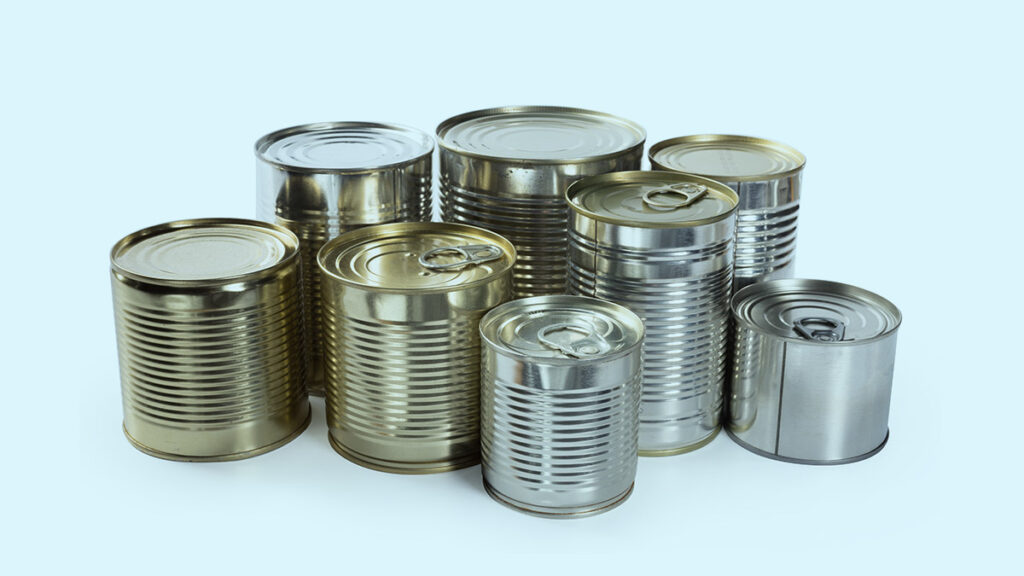The packaging of edible oils and vegetable ghee is critical not only to preserve the safety and quality of these products but also to maintain their appeal in a highly competitive market. Packaging materials that fail to meet regulatory standards can compromise consumer health, damage brand reputation, and lead to severe legal repercussions. Recently, the Food Safety and Standards Authority of India (FSSAI) has intensified its efforts to ensure that oil millers, producers, and repackers adhere to strict packaging norms. Understanding the regulatory landscape and adopting best practices is essential for businesses to ensure compliance and safeguard consumer trust.
FSSAI’s Commitment to Food Safety
The FSSAI has long been at the forefront of regulating the Indian food industry, ensuring that food products adhere to stringent safety and hygiene standards. A key aspect of their mandate is overseeing the use of food-grade packaging materials to eliminate risks of contamination. Packaging is not just a protective layer; it is a vital component that ensures the integrity of the food inside.
In recent times, the FSSAI has expressed concern over the use of recycled tins for packaging edible oils. These recycled materials can harbor chemical residues, microbial contaminants, and degraded substances that pose significant risks to consumer health. As a result, the FSSAI is mandating strict adherence to packaging standards, urging oil millers, producers, and repackers to transition to food-grade certified packaging materials to safeguard the quality and safety of their products.

Challenges in the Packaging Ecosystem
1. Cost Pressures on Small and Medium-Scale Enterprises (SMEs)
Many small-scale oil millers and repackers face significant cost pressures, often opting for cheaper, non-compliant packaging materials like recycled tins. While these materials may be economically viable, they introduce substantial risks to food safety and are often unable to meet FSSAI’s food-grade standards.
2. Lack of Awareness Among Stakeholders
A lack of awareness regarding technical and regulatory packaging requirements is another challenge in the ecosystem. Many businesses, particularly SMEs, may not fully understand the detailed compliance standards, leading to inadvertent violations of FSSAI guidelines.
3. Balancing Safety with Sustainability
As consumers demand more sustainable packaging solutions, the shift towards environmentally friendly materials introduces additional complexities. While it’s crucial to adopt eco-friendly practices, businesses must ensure that these sustainable alternatives also meet FSSAI food safety standards. Balancing sustainability with safety is an ongoing challenge in the packaging sector.
Best Practices for Packaging Compliance
To overcome these challenges and align with FSSAI’s guidelines, businesses in the edible oil sector, including oil millers, producers, and repackers, should adopt the following best practices:
1. Transition to Certified Food-Grade Packaging Materials
Investing in certified food-grade packaging materials is non-negotiable. These materials act as a barrier to contaminants, preserving the quality and safety of edible oils. This step ensures both compliance and consumer protection, while enhancing the integrity of the product.
2. Implement Robust Quality Control Systems
Establishing and maintaining strong quality control systems is critical. Regular audits of packaging processes, raw materials, and finished goods can help identify gaps in compliance. Traceability systems ensure that every step of the production and packaging process is accountable, minimizing risks to both safety and brand reputation.
3. Collaborate with Packaging Experts
Partnering with food safety labs and specialized packaging suppliers can provide access to innovative, compliant solutions that align with FSSAI standards. These collaborations can also assist in obtaining the necessary certifications and guidance to maintain high-quality packaging practices.
4. Focus on Sustainability Without Compromise
While the demand for sustainable packaging is on the rise, businesses must ensure that eco-friendly materials also meet food safety regulations. Exploring alternatives such as bio-based polymers, glass packaging, or certified recyclable materials can align sustainability goals with safety standards. This approach resonates with environmentally conscious consumers while maintaining product integrity.
5. Educate and Train Employees and Suppliers
Education is key to ensuring compliance. Organizing training sessions focused on FSSAI standards, food safety principles, and sustainable practices for employees and suppliers helps align everyone with the organization’s goals. Knowledgeable stakeholders are more likely to adhere to packaging and food safety standards, reducing the risk of violations.
The Path Forward for the Edible Oil Industry
By adopting these best practices, businesses in the edible oil sector can not only meet FSSAI’s stringent requirements but also minimize risks and build consumer trust. Compliance with FSSAI standards is not simply a legal necessity—it is a commitment to delivering safe, high-quality products that consumers can trust.
Additionally, the adoption of innovative, compliant, and sustainable packaging solutions presents a unique opportunity to gain a competitive edge in the market. Brands that prioritize consumer health, transparency, and environmental sustainability are well-positioned to thrive in today’s conscientious market.
A Call for Industry-Wide Collaboration
Ensuring the safety of edible oils and vegetable ghee requires a collaborative approach among manufacturers, suppliers, and regulators. FSSAI’s ongoing efforts to enforce packaging standards should be seen as an opportunity for the industry to improve practices and enhance consumer confidence.
For repackers, in particular, ensuring that packaging materials meet food safety standards is crucial. Repackers who use non-compliant packaging risk damaging the reputation of the brands they serve. Brands, in turn, must ensure that they are sourcing products from compliant and responsible partners. Maintaining strong relationships with trusted repackers who adhere to FSSAI’s regulations will help avoid potential risks and ensure that consumers receive safe and high-quality products.
Together, through compliance, innovation, and collaboration, the edible oil sector can uphold the highest standards of quality, positioning India as a global leader in food safety and sustainability.


